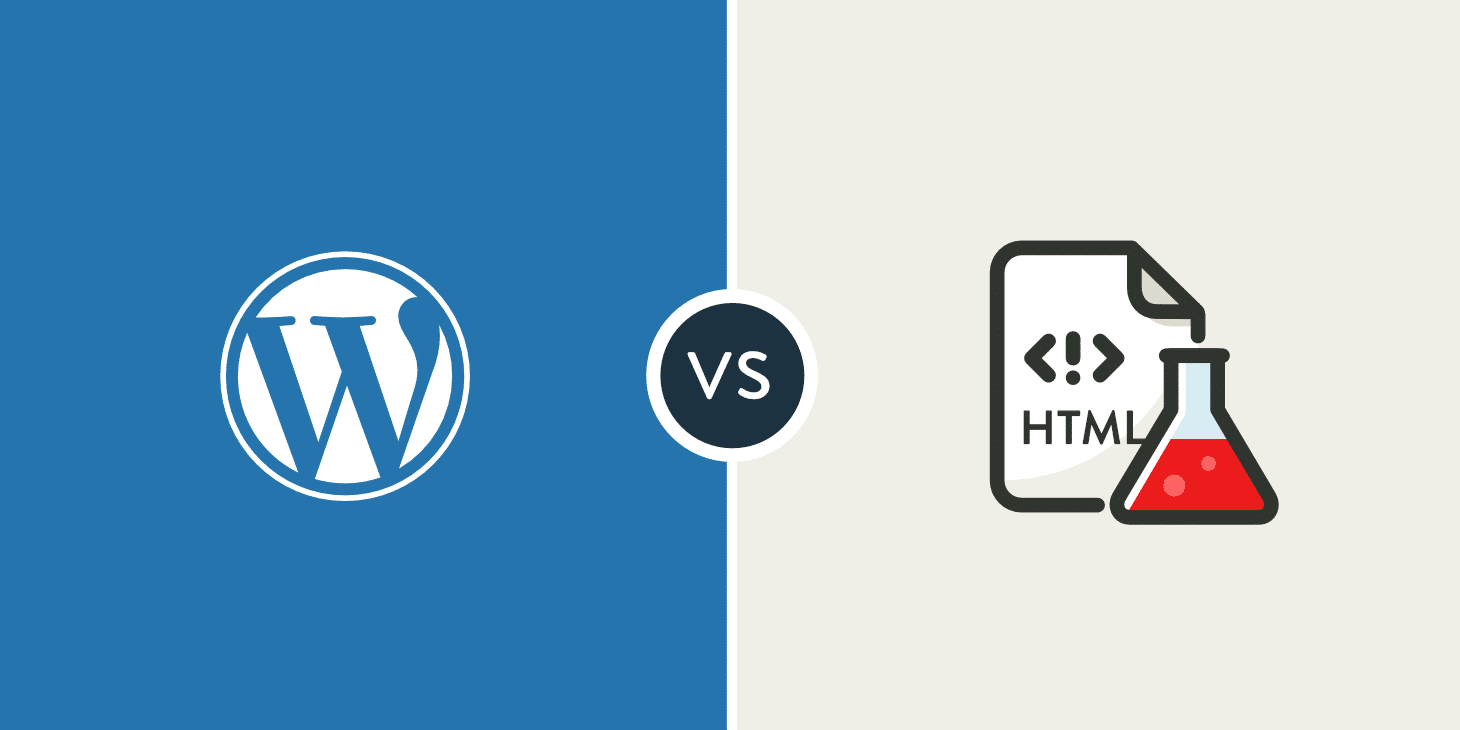When it comes to building a website, you have several options available, with WordPress and HTML being two popular choices. WordPress is a content management system (CMS) that simplifies website creation, while HTML involves coding websites from scratch. In this article, we will compare WordPress and HTML, highlighting their features, advantages, and considerations to help you make an informed decision about which platform is best suited for your website needs.
- Ease of Use: WordPress: WordPress is known for its user-friendly interface and intuitive content management system. It requires no coding knowledge, making it accessible to beginners and non-technical users. The platform offers a visual editor, drag-and-drop functionality, and a wide range of plugins and themes that simplify website customization.
HTML: HTML, on the other hand, requires coding knowledge and a deeper understanding of web development. Creating a website from scratch using HTML involves writing code for every element and page. While it offers complete control over customization, it requires more technical expertise and time commitment.
- Flexibility and Customization: WordPress: With its extensive library of plugins and themes, WordPress provides a vast array of customization options. You can choose from thousands of themes to create unique designs and add functionality using plugins. WordPress allows you to easily update and modify your website’s content and design, making it flexible for different types of websites.
HTML: HTML offers complete control over every aspect of your website’s design and functionality. You have the freedom to create a fully customized website tailored to your specific needs. However, this level of customization requires proficiency in coding and can be time-consuming, especially for complex websites.
- Maintenance and Updates: WordPress: WordPress simplifies website maintenance and updates through its user-friendly admin panel. It offers automatic updates for the core software, plugins, and themes, ensuring that your website remains secure and up to date. Regular backups and security measures can be easily implemented using plugins.
HTML: With HTML, you are responsible for maintaining and updating every aspect of your website manually. This includes ensuring code compatibility with different browsers, implementing security measures, and managing updates. It requires more technical knowledge and ongoing monitoring to keep your website secure and functioning optimally.
- Scalability: WordPress: WordPress is highly scalable and can accommodate websites of various sizes and complexities. Whether you’re starting with a simple blog or expanding to an e-commerce platform, WordPress can scale along with your business needs. The availability of plugins and themes enables you to add new features and functionality as your website grows.
HTML: HTML provides flexibility for scalability, allowing you to build a website that suits your specific requirements. However, scaling a HTML-based website often involves manually updating and modifying the code, which can be time-consuming and requires technical expertise.
- SEO-Friendliness: WordPress: WordPress offers built-in SEO features and plugins that simplify search engine optimization. You can easily optimize meta tags, create SEO-friendly URLs, and install plugins that assist with keyword optimization, XML sitemaps, and other SEO elements. WordPress’s user-friendly interface makes it accessible for users to implement SEO best practices.
HTML: HTML allows for full control over SEO optimization, as every aspect of the website’s code can be fine-tuned. However, it requires a deeper understanding of SEO principles and the ability to manually implement optimizations.
Conclusion: Choosing between WordPress and HTML depends on your specific needs, technical expertise, and preferences. If you prioritize ease of use, flexibility, and a user-friendly interface, WordPress is an excellent choice. It simplifies website creation, customization, and maintenance. On the other hand, if you require complete control over customization, have coding skills, and are willing to invest more time in building a website from scratch, HTML may be the better option. Consider your goals, resources, and desired level of control to make an informed decision that aligns with your website requirements.

Leave a Reply